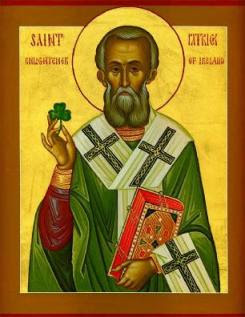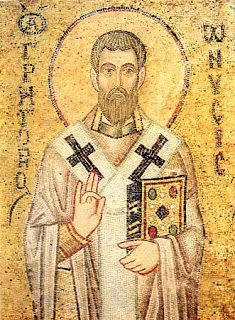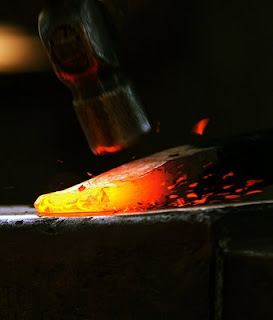
1. In the prologue, St. Benedict uses the metaphor of a knight fighting for a king and calls upon monks to "take up the strong, bright weapons of obedience." What practices or behaviors do you think he would be referring to, and in what way are they weapons?
2. St. Benedict refers to the need to "open our eyes to the deifying light". What do you think he means here?
3. In several places mention is made of dashing ones thoughts against Christ. What is this, and how would one do it?
4. What is Benedict's justification for some degree of strictness or severity in his Rule?
5. Describe the four kinds of monks, and explain the hierarchy that Benedict places them in and why. What makes cenobites the "strongest" kind?
6. What reasons does St. Benedict give for requiring such stout and upright character of any man who would be abbot? Which of these reasons or character traits would you also want to find in other types of leaders (political, athletic, military, etc.)?
7. Explain the three-fold approach of "Reprove, entreat, rebuke." Why should the abbot avail himself of such a strategy?
8. Why does Benedict suggest the Abbot call upon the other monks for input in making decisions?
9. Which of the instruments of Good Works (ch. 4) do you think are most common in our culture? and which are most lacking? Give examples of each and explain why you think they are so common / rare.
10. Why is obedience alone not enough? What must it be coupled with to be found pleasing to God?
11. What harm is there in idle chat or humorous conversation that silence is to be preferred? Has our culture lost sight of the value of slience? Either way, give examples, and explain if we are better or worse for it.
12. Briefly summarize Benedict's "12 Step Program" toward humility? Why is humility so valuable in the monastery? To what extent whould it be beneficial outside the monastery?


















 In preparation for our reading of St. Cyprian's Treatise on Church Unity, please read Holy Father's
In preparation for our reading of St. Cyprian's Treatise on Church Unity, please read Holy Father's 







